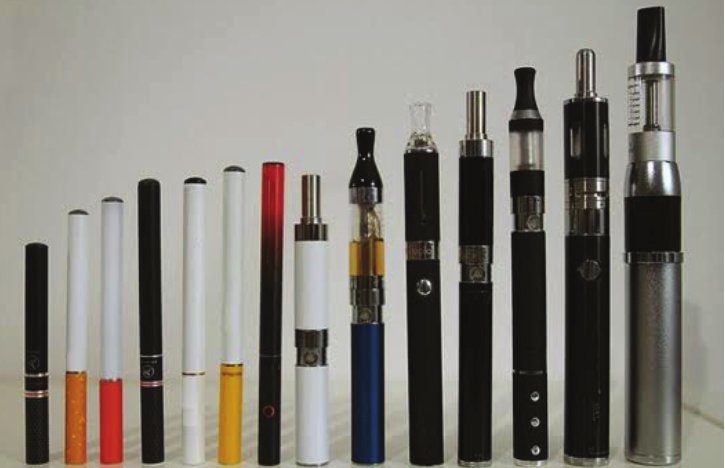Until earlier this week, the proposed regulation had local e-cigarette retailers worried they would be lumped in categorically with all tobacco sellers, evidence of a larger debate as the growing “vaping” industry distances itself from traditional smoking practices.
Such a distinction has prevented statewide legislation from passing that would ban e-cigarette sales to minors — a policy virtually everyone agrees on. Michigan is one of only two states that don’t ban the sales to minors, according to the National Conference of State Legislatures.
The Ingham County Board of Commissioners is scheduled to vote Tuesday on regulations that would ban e-cigarette sales to minors and require retailers to buy a license. A public meeting on the proposal is scheduled for 6 tonight at the Human Services Building, Conference Room A (enter through door 3)
5303 S. Cedar St.
Responding to vaping advocates’ concerns, the county announced on Monday that it would offer “electronic smoking device” licenses to retailers only selling e-cigarette products instead of requiring them to buy a tobacco license.
Currently, anyone can theoretically buy and sell e-cigarettes in Michigan.
E-cigarettes vaporize nicotine to provide the user a similar high as from tobacco products without inhaling harmful substances that are proven to cause a myriad of negative health effects.
Efforts from a local state lawmaker to ban e-cigarette sales to minors statewide has stalled due to the disagreement over whether e-cigarettes and nicotine are the same as tobacco. Categorizing e-cigarettes as tobacco — which the U.S. Food and Drug Administration is trying to do — would subject them to taxes and ban them from being used in public spaces.
Vaping advocates, however, point out that they can be valuable smoking cessation devices and aren’t nearly as harmful to public health.
“We’re trying to prohibit the sales (of e-cigarettes) to minors,” said Ingham County Health Officer Linda Vail, referring to the use of e-cigarettes' spiking among 10th, 11th and 12th graders.
Vail is confident the new rules will pass and be in effect by Jan. 1.
The county would perform compliance checks to make sure retailers are following the rules, a policy Ingham County started for tobacco sellers in the early ‘90s that Vail said led to a major drop in sales to minors.
The licensing change this week shouldn’t come as an endorsement that the county believes e-cigarettes are not tobacco, Vail said, but was made to “not ignore” concerned stakeholders.
“We’re not taking a position one way or the other,” she said. “We heard very convincing points made on both sides. For me to sit here and come to the conclusion as to whether I want to declare (e-cigarettes) tobacco doesn’t further the goal I’m try-ing to accomplish at this point.”
“We’re seeing growing evidence that though the vapor product and all that goes with e-cigarettes … is possibly less harmful than tobacco smoke, it doesn’t mean that it’s not harmful at all,” Vail added.
 But industry advocates and state Sen. Rick Jones, R- Grand Ledge, see it differently than those — including Gov. Rick Snyder — who want to call e-cigarettes tobacco.
But industry advocates and state Sen. Rick Jones, R- Grand Ledge, see it differently than those — including Gov. Rick Snyder — who want to call e-cigarettes tobacco.
In January, Snyder vetoed legislation whose sponsors included Jones to ban e-cigs, saying, “It’s important that these devices be treated like tobacco products and help people become aware of the dangers e-cigarettes pose."
Countered Jones: “I don’t think you need to have a tobacco license to sell it. They are nicotine devices — many people use them to get off tobacco. The governor has sided with people that want to treat it like a cigarette and tax it. I absolutely disagree with that.”
The state Senate passed legislation re-introduced by Jones this session that would ban sales to minors.
Joshua Hull, manager of Kalamazoo Vapor Shop in the Frandor Shopping Center, said he’s “100 percent for” the proposed countywide rules to ban sales to minors. The store, which sells only e-cigarette products and not tobacco, has a policy not to sell to minors anyway, he said.
“Our main argument is we’d like it classified as a vapor license,” he said. “I don’t think it should be considered tobacco because, realistically, it’s not. There are so many different chemicals in one cigarette while (e-cigarettes) have four main ingredients.”
While the countywide regulations banning sales to minors are likely to pass, the debate at the state level has not receded.
A coalition of health organizations signed on to a letter this year encouraging lawmakers to reject Jones’ bill because “they are about protecting tobacco company profits.”
“Electronic cigarettes are in no way a safe substitute to smoking, but current legislation (SB 231) would give them the kind of special treatment that would undermine Michi-gan’s fight against smoking and tobacco-related diseases,” Kevin McFatridge, a spokesman for the Michigan State Medical Society, said in an email.
Jones said it’s “doubtful” that if his bill reaches Snyder’s desk again that the governor would sign it.
“We’re at a standstill unless I can get the House and Senate to overrule him,” he said, “and that’s a possibility.”
Photo by the-best-electronic-cigarette-review.com.
Support City Pulse - Donate Today!
Comments
No comments on this item Please log in to comment by clicking here